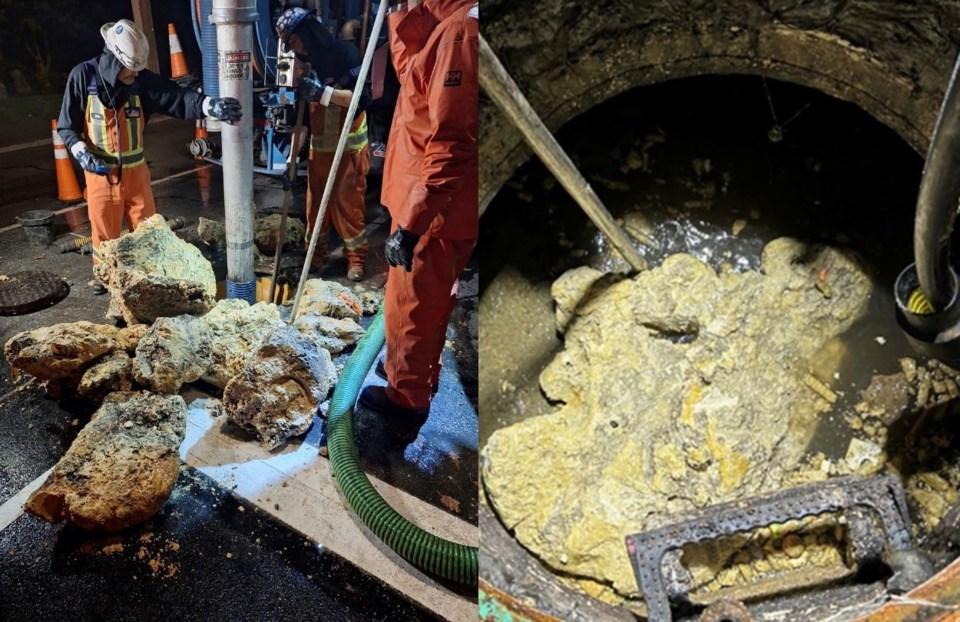Richmond's sewers aren't considered the cleanest places, but there are still some things that just don't belong down there.
Metro Vancouver removed more than 50 tonnes of fatbergs — chunks of hardened grease — from the city's sewer system since July.
Hardened grease comes from dairy products, margarine, gravy, cooking oils, salad dressing, mayonnaise and even animal fats that are poured down the drain or flushed down the toilet.
This is the first time the regional utility corporation has seen the problem "to this scale," according to Dana Zheng, program manager of source control planning and management at Metro Vancouver
Zheng explained large amounts of fatbergs in the sewer system normally happen in high-density areas.
"Richmond, in particular, has always been a bit of a hotspot for grease issues and that's a combination of the ... high number of restaurants in the area as well as it is very flat in Richmond," she said.
"Wastewater then tends to sit in the pipes, which gives it that extra time for grease to harden and line our sewer mains."
Clogged pipes due to fatbergs damage infrastructure, reduce capacity for wastewater and can lead to sewer backups into homes, and businesses as well as into the environment.
Zheng told the Richmond News fatbergs were seen at the Lulu Wastewater Treatment Plant in the summer, which also caused pricey damages to the equipment.
"It can be a big deal if we have too much grease in our system," she added.
"There is an out of sight, out of mind mentality when it comes to wastewater and we're reminding residents and businesses to deal with grease properly."
Fats, oils and grease are supposed to be disposed of in the green bin and not down the drain or toilet.
Restaurants are also reminded to do their part by having the right-sized grease traps and regularly clean and maintain them.
"Here at Metro Vancouver, we are increasing our restaurant inspections within the City of Richmond to ensure that restaurants in that affected area know what the right thing to do is and are following our regulations," said Zheng.
The regional utility corporation spends $2.7 million every year to repair damage caused by fats, oils and grease in the system — not including clogged pipes in homes.
For more information on how to dispose of grease and fats, visit the Metro Vancouver website.
Got an opinion on this story or any others in Richmond? Send us a letter or email your thoughts or story tips to [email protected]. To stay updated on Richmond news, sign up for our daily headline newsletter. Words missing in article? Your adblocker might be preventing hyperlinked text from appearing.


